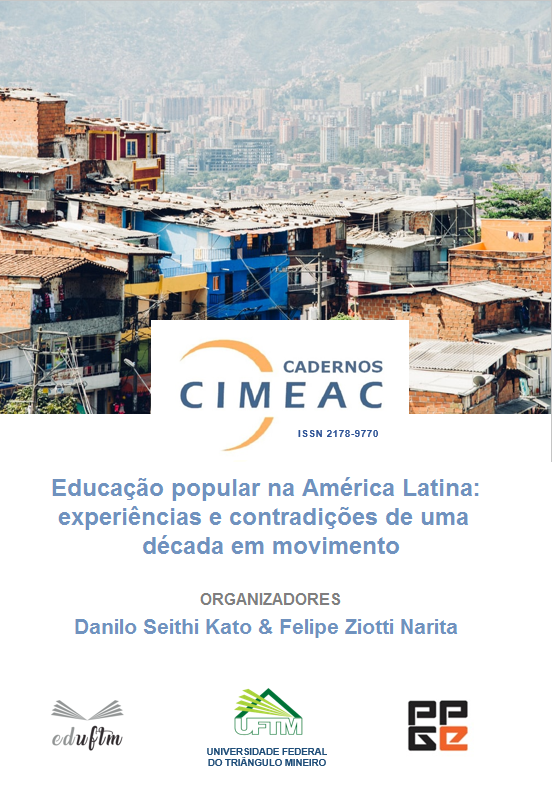A educação popular como arte do possível? Emancipação intelectual nas misiones venezuelanas
DOI:
https://doi.org/10.18554/cimeac.v10i3.4912Resumo
Por meio da observação etnográfica de um dispositivo educacional em situação de exclusão social, as misiones na Venezuela de Hugo Chávez, este artigo propõe algumas pistas analíticas para conectar uma sociologia da educação a uma sociologia da emancipação. Pilares da educação revolucionaria do povo no novo governo bolivariano, as misiones, dirigidas primordialmente à geração excluída da democratização do ensino (1950-1970), compõem a tradição da educação popular latino-americana. Se os resultados desta “escola do povo”, em termos de integração escolar das classes populares, são mitigados ou dificilmente apreciáveis, há uma forte impressão de emancipação por parte dos participantes nos barrios, considerando que o projeto tem poucos vínculos com o conhecimento fornecido ou com a aprendizagem escolar. Podemos abordar o nascimento de um sujeito popular a partir de três dinâmicas de emancipação em educação: criação de um espaço de interconhecimento a partir da sala de aula, bem como a dialética de liberdade e invenção de si propiciada pela especificidade do momento escolar.
Palavras-chave: Educação popular; Venezuela; Barrios; Integração escolar; Emancipação intelectual.
ABSTRACT: Through the ethnographic observation of an educational system in a situation of social exclusion (Hugo Chávez's misiones in Venezuela), this article proposes analytical insights that link a sociology of education with a sociology of emancipation. Pillars of the revolutionary education of the people of the new Bolivarian government, the misiones are devoted primarily to the generation excluded from the democratization of education (1950-1970) and are part of the tradition of popular education in Latin America. If the results of this “school of the people” in terms of school integration of the working classes are mixed or in any case hardly appreciable, it emerges a strong impression of emancipation on the part of the participants in the barrios, which however maintains relatively weak links with school learning. We can approach the birth of a popular subject from three dynamics of emancipation: the creation of a space of mutual knowledge from the classroom and a dialectic between freedom and self-invention allowed by the specificity of the school moment.
Keywords: Popular education; Venezuela; Barrios; School integration; Intellectual emancipation.
Downloads
Publicado
Edição
Seção
Licença
Os autores que publicam nesta revista concordam com os seguintes termos:
(a) Não cobramos dos autores para a publicação neste periódico.
(b) Autores mantém os direitos autorais e concedem à revista o direito de primeira publicação, com o trabalho simultaneamente licenciado sob a Licença Creative Commons que permite o compartilhamento do trabalho com reconhecimento da autoria e publicação inicial nesta revista.
(c) Autores têm permissão e são estimulados a difundir e a distribuir a versão publicada de seu trabalho online (ex.: em repositórios institucionais ou na sua página pessoal) após o processo editorial, já que isso pode aumentar o impacto e a citação do trabalho publicado (Veja O Efeito do Acesso Livre).
* * *
AUTHORS COPYRIGHT AND PUBLISHING RIGHTS
Authors who publish with this journal agree to the following terms:
(a) This journal does not charge authors for publication.
(b) Authors retain copyright and grant the journal right of first publication with the work simultaneously licensed under a Creative Commons Attribution License that allows others to share the work with an acknowledgement of the work's authorship and initial publication in this journal.
(c) For authors whose articles have been accepted: authors are permitted and encouraged to post their work online (e.g., in institutional repositories or on their website) after the publication of the text in Cadernos CIMEAC, as it can lead to productive exchanges as well as earlier and greater citation of published work (See The Effect of Open Access).


 10.18554/cimeac
10.18554/cimeac


